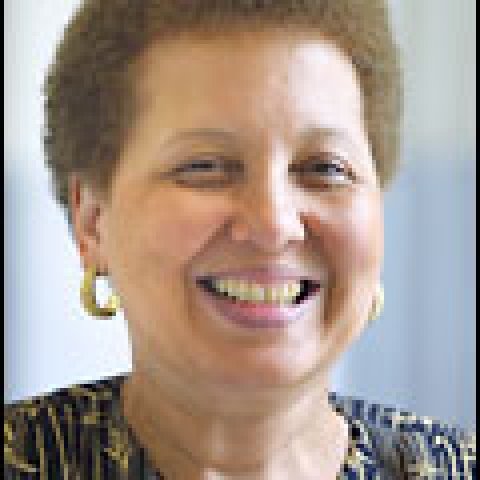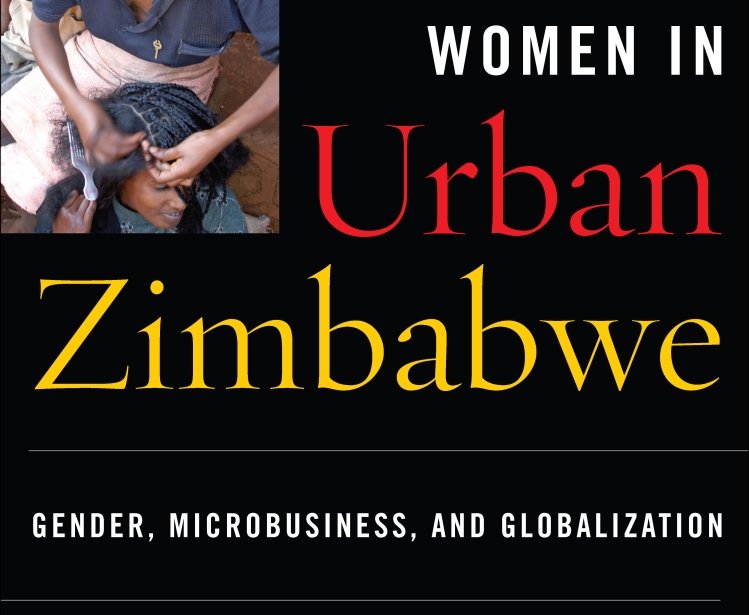Mary Johnson Osirim
Professional affiliation
Wilson Center Projects
"Enterprising Women: Identity, Entrepreneurship and Civil Society in Urban Zimbabwe"
Full Biography
My interests in the role of women, entrepreneurship, and African development emerge from my studies in Caribbean development and the social history of the family as an undergraduate at Harvard-Radcliffe. After my junior year, I went to Guyana, my father's birthplace, to study the influence of work on family life in the sugar and bauxite industries. This qualitative research project included interviews with 120 workers in these areas and developed my "passion" for fieldwork. As a Master's student in Sociology at The London School of Economics and later as a Doctoral candidate at Harvard, I pursued my studies of the major theories in development studies and empirical work on Latin America and the Caribbean. Two factors influenced the shift in my research from the Americas to sub-Saharan Africa and entrepreneurship. First, while at LSE, I joined the Africa Club and met many students from a wide-range of African countries with whom I had numerous conversations about the social, economic, and political problems facing their nations. Second, after my first year of graduate study at Harvard, I worked as a summer research assistant in the Urban Projects Department at the World Bank. In this latter capacity, I became particularly interested in the problems of urban poverty faced by many southern nations and the strategies used by local populations to survive. This project introduced me to the critical role that small and microenterprises in the informal sector occupy in the lives of the urban poor. I further investigated support systems established by the state and/or non-governmental organizations (NGO's) that provided (or failed to provide) assistance to the poor and their firms. These questions became some of the pivotal ones that guided my dissertation research on, "Characteristics of Entrepreneurship among Nigerian Industries that Started Small." My study critiqued the early modernization and psycho-cultural perspectives in this field and sought to uncover the definitions of "success" expressed by entrepreneurs in the baking and furniture industries (a predominantly male sample) within the context of Nigerian social structure. While conducting my dissertation research, I continued to wonder "where the women were," since West African women have a long history of participation in income-generating activities. Thus, my recent work has focused on the creation of microbusinesses by women and their contributions to development first in urban southwestern Nigeria and later in Zimbabwe. The informal sector is a growing segment of the economy in the North and the South, and in sub-Saharan Africa, it is expanding in response to economic crises. I employ a feminist political economy paradigm which explores the consequences of the gendered international division of labor at the national level and the role of foreign states and multilateral agencies in constructing the parameters of development in the South. Using this approach, I conducted fieldwork in Zimbabwe throughout the 1990's on the operation of women's enterprises, their roles and responsibilities in their families and households and their relationship to the state and NGO's. I have interviewed entrepreneurs in market trade, sewing, hairdressing, and crocheting, as well as cross-border traders who work in Johannesburg, South Africa. My research breaks new ground through the study of different segments of the informal sector and combines this with an emphasis on the role of the state and NGO's in charting the prospects of development for women's businesses, their communities and civil society. I have discovered that these women are indeed entrepreneurs who understand the market, have diversified production and sales and in the process, have moved beyond simple survival. They are active agents of change who are redefining civil society.As a faculty member at Bryn Mawr, I have attempted to integrate the orientation to theory, practice, and policy evident in my research with my teaching. My life as a teacher-scholar is particularly invigorating because of the highly motivated students and the commitment to social justice that I share with my colleagues. I have taught a wide-range of courses in development, economic sociology, gender, and the family. Bryn Mawr has also provided me with many challenging leadership positions which have significantly contributed to my professional growth. In addition to chairing the sociology department, I helped establish and later coordinated our Africana Studies Program and our Title VI African Studies Consortium (with Haverford, Swarthmore, and the University of Pennsylvania). During the past two years, I have been especially enriched by my work as Co-Director of our new Center for Ethnicities, Communities and Social Policy. I eagerly look forward to joining the dynamic community of scholars during my sabbatical at The Woodrow Wilson Center.
Education
A.B. (1976) Harvard-Radcliffe cum laude; M.Sc. (1977) The London School of Economics and Political Science; Ph.D. (1990) Harvard University
Positions Held
Subjects
Gender Issues,International Development
Experience
- Associate Professor of Sociology and Co-Director, The Center for Ethnicities, Communities and Social Policy, Bryn Mawr College, Bryn Mawr, PA, 2001-present
- Associate Professor of Sociology and Co-Director for Planning, The Center for Ethnicities, Communities and Social Policy, Bryn Mawr College, Bryn Mawr, PA, 2000-01
- Associate Professor of Sociology and Chair, Department of Sociology, Bryn Mawr College, Bryn Mawr, PA, 1998-2001
- Associate Professor of Sociology, Coordinator, The Africana Studies Program and Director, The African Studies Consortium, Bryn Mawr College, Bryn Mawr, PA, 1996-98
- Assistant Ð Associate Professor of Sociology on the Rosalyn Schwartz Lectureship and Director, The African Studies Consortium, Bryn Mawr College, Bryn Mawr, PA, (most years from 1992-95)
- Visiting Associate Professor, The Honors Program, Villanova University, Villanova, PA, Fall, 1994.
Expertise
Women and development in Western and Southern Africa and the English-speaking Caribbean; the sociology of development; economic sociology; race, class, and gender in the U.S.; the sociology of the family
Major Publications
- "Making Good on Commitments to Grassroots Women: NGO's and Empowerment for Women in Contemporary Zimbabwe." Women's Studies International Forum, 24/2, April, 2001, pp. 167-180.
- "Vehicles for Change and Empowerment: Urban Women's Organizations in Nigeria and Zimbabwe." Scandinavian Journal of Development Alternatives and Area Studies, June, 1998, pp. 145-164.
- "Negotiating Identities in an Era of Adjustment: Women Microentrepreneurs in Urban Zimbabwe." Spring and McDade, eds., African Entrepreneurship: Theory and Reality. Gainesville: University Press of Florida, 1998, pp. 277-297.


